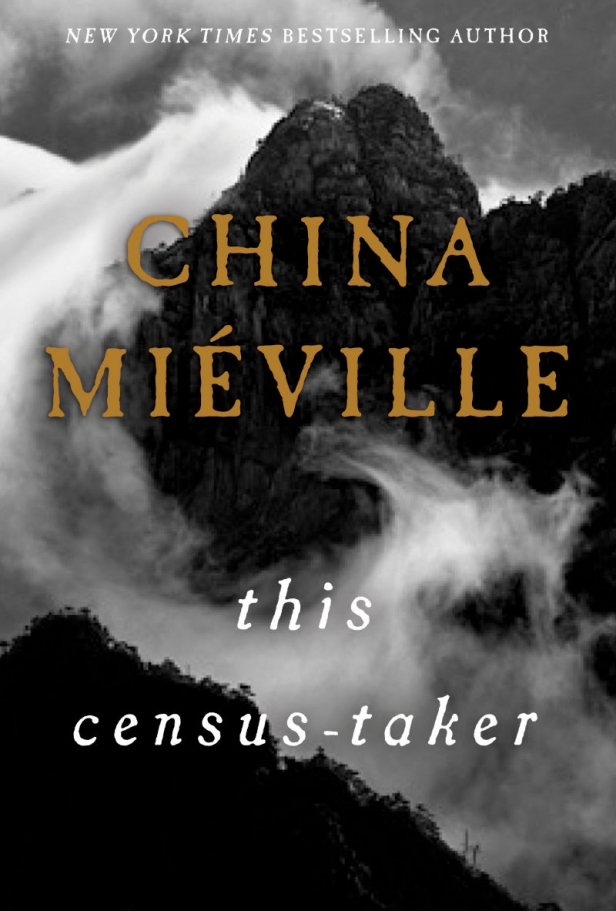Every new piece of fiction from China Miéville is a cause for excitement. Last year we got his superb short story collection Three Moments Of An Explosion, and here’s a beautiful novella from the author of Perdido Street Station, Kraken and Un Lun Dun.
This Census-Taker is told by a man reflecting on his youth, and opens with the traumatic event that would define his childhood. He remembers running down the hillside into the town, shouting that his mother has killed his father. Except he’s got it wrong: his father has killed his mother. At least, that’s what he saw.
Miéville creates a beautiful landscape in an uncertain country and era, where a small town perches on the side of a mountain and is halfway to being swallowed back up by it. The land holds a power over the people who live in it. Trees push through buildings as if reclaiming them, the bridge’s reluctance to remain functional seems to be palpable, wild animals of uncertain species can be heard at night, and a hole in a cave operates as something approaching a sacrificial altar.
The narrator’s recollection of his childhood is wonderfully rendered, as Miéville fully immerses us in the boy’s world, only occasionally taking a slight step back. His parents have created a life for themselves outside the small town, whose inhabitants occasionally make the journey up the hill for the father’s services. In one of the novella’s many partially explained teases, we’re told that he makes keys for customers to solve any kind of problem.
The narrator wonders at the seemingly fragile state of his family’s happiness, with a mother who grows more mysterious the closer she gets, and a father whose amiable kindness is punctuated by violent outbursts (never directed at the boy). The two characters are expertly drawn, with each moment of human warmth or cold distancing taking on massive importance.
With both parents established as outsiders, or ‘uphillers’, the boy yearns to belong, and at his mother’s prompting finds himself drawn to the children who run half-wild in the town’s streets. When things get bad at home, he goes to them, only to be continually thwarted by the town’s approximation of law enforcement. The portrayal of his desperation and loss are heartbreaking.
Eventually it falls to the titular census-taker to offer the narrator an escape, but the exact nature of this census is unclear, and that secrecy has a real power. At one point the narrator talks about the type of book that he is writing, and explains that there are three kinds: the first book is the census that he is now working on as an adult; the second is the book for other people to read, which is the story he is telling, and which he tells us had previously been started by someone else; and the third is private and full of secrets, which he reveals is already a quarter full.
With so much kept at a deliberate distance, what we’re allowed to see and to know takes on an incredible power. This Census-Taker takes root quickly, and you won’t soon forget it.
